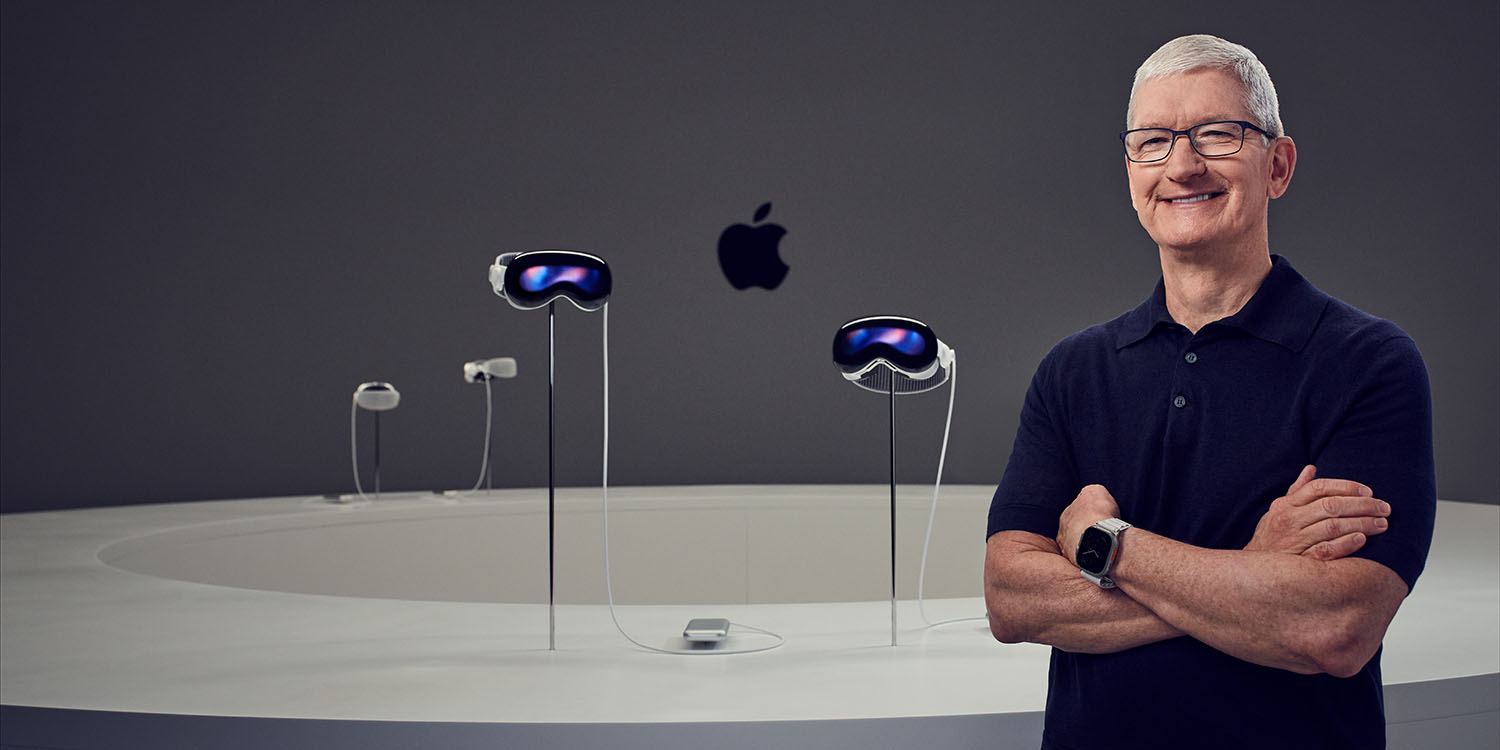
A new report from The Information today says that Apple is researching ways to use Vision Pro to diagnose and treat mental health issues. According to the story, Apple wants to use Vision Pro’s array of cameras and sensors to detect when a user might have “depression, anxiety, stress or post-traumatic stress disorder.”
Citing people with “direct knowledge of the matter,” The Information’s report outlines that Vision Pro could detect these mental health issues and subsequently “display images and sounds that might improve the wearer’s emotions.”
For example, Apple has discussed using the Vision Pro’s eye-tracking and camera systems to measure how a person “expresses feelings or emotions,” referred to as a user’s “affect.”
A “flat affect” or emotionless expression can be a sign that a person has schizophrenia, autism, depression, brain damage or even PTSD, for example. Members of Apple’s Vision Products Group, including its leader, Mike Rockwell, have devoted extensive time to discussing the healthcare possibilities of the headset and have hired health experts to explore such features for the device, one of the people said.
Another idea floated inside Apple is using Vision Pro’s eye-tracking cameras to “detect pupil dilation,” which could “provide a clue to a person’s mood,” the story says. “The device’s infrared cameras could also detect swelling in the blood vessels of the eyes, a possible early sign of heart failure.”
Apple employees have also discussed how Vision Pro could “sense weight fluctuations in a person’s body” and “screen for ailments such as Parkinson’s disease.”
While the report cautions that these features might never be released, Apple has “extensively discussed or explored health, wellness, and fitness features” for Vision Pro as recently as this year.
Some employees inside Apple are said to be skeptical of making any claims related to mental health and Vision Pro. In addition to potential regulatory and legal hurdles, there’s also the chance that the features simply won’t work as well as Apple might hope.
“Some people involved in Apple’s health efforts were skeptical about whether the devices could be as effective as other treatments, such as medicine,” The Information reports.
Follow Chance: Threads, Twitter, Instagram, and Mastodon.
FTC: We use income earning auto affiliate links. More.


Comments